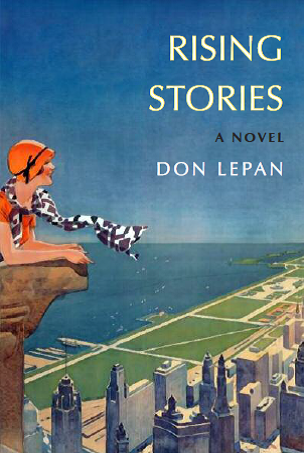One reason may be philosophical. As Angus Taylor sets out in his fine book Animals and Ethics, some environmentalists have long regarded those who advocate on behalf of non-human animals with suspicion—as “sentimentalists who are unwilling to face up to the realities of life and death.” If we ascribe rights to non-human animals, does logic require that we interfere in nature so as to protect wild animals from their natural predators? To what degree should non-human animals be granted moral standing? These may indeed be vexed issues. But as is increasingly recognized, agreement on those sorts of philosophical issues is not required in order to form a coalition against factory farming; relgious people who believe humans should have dominion over other animals can on this issue be in broad agreement with secular environmentalists, with those who support animal rights, and with those whose primary concern is for human health. From all angles, factory farming causes horrendous damage—and, thankfully, these days most environmental groups acknowledge that fact. Yet confronting factory farming remains at or near the bottom of their list of priorities. Again, why?
Could it be a funding issue? That suggestion is raised in an October 21 2008 canada.com article, “Eating Less Meat is Critical to Our Planet’s Future”; Dennis Cunningham of the International Institute for Sustainable Development notes that “when environmental groups apply to governments or large corporations for money to produce an education program, the funding organization can dictate the priorities such a program should take. And no government wants to risk offending a powerful agriculture lobby by telling people to eat less meat — even if it’s good for them.”
Certainly it’s always interesting to know where the money is coming from. Take for instance this past week’s story about Frank Mitloehner, an academic who presented a paper entitled “Clearing the Air” at a conference of the American Chemical Society in which he questioned the Food and Agriculture Organization’s 2008 estimate that our meat-eating ways are responsible for a higher percentage of the world’s carbon emissions (they estimated 18%) than is the entire transportation category (an estimated 15%). Apparently the statistics deserve to be questioned; the UN has admitted flaws in the FAO's calculations, and arguments over what the true percentages are will doubtless continue for some time.* The interesting thing about Mitloehner’s paper, though, is that he doesn't stop at querying meat-eating’s percentage contribution to global warming. He takes a big leap beyond that to broad prescriptions for world agricultural policy: “Producing less meat and milk will only mean more hunger in poor countries....The developed world’s efforts should focus not on reducing meat and milk consumption,” says Mitloehner, “but rather on increasing efficient meat production in developing countries, where growing populations need more nutritious food.” Far from shutting down the factory farms, in other words, he wants to expand them. Through what mechanism might hunger be more easily reduced by raising cows and pigs rather than by growing grains and legumes for direct human consumption (when common sense as well as the weight of much expert opinion points in the other direction)? Mitloehner does not dwell on that question. And he says nothing about dangers to human health from such things as the overuse of antibiotics, nothing about the damage to the world's water supply from the run-off of excrement from factory farms, and (of course) nothing about the issue of cruelty to animals. Even if we accepted the suggestion that our meat-eating habits in no way contribute to global warming, in other words, there are many, many reasons to oppose factory farming. Instead, Mitloehner endorses a call for “replacing current suboptimal production with advanced production methods — at every step from feed production, through livestock production and processing, to distribution and marketing.”
Here’s one piece of information about his paper that you won’t find in the reports on Fox News or in Time Magazine or in the Toronto Sun: the paper “is a synthesis of research... Writing the synthesis was supported by a $26,000 research grant from the Beef Checkoff Program, which funds research and other activities, including promotion and consumer education, through fees on beef producers in the U.S.” Mitloehner goes on to report that in total he “has received $5 million in research funding, with 5 percent of the total from agricultural commodities groups, such as beef producers.” That 5% may sound small — until one remembers that 5% of $5 million is still a hefty $250,000. Interestingly, his research seems almost all to have been on such subjects as ammonia levels in the factory farming of pigs rather than on global warming. Here's a sample, from a study that received $40,000 in funding from the National Pork Board: “Acute and Chronic effects of Ammonia on...Nursery Pigs”:
Most of the existing guidlines and recommendations for animal houses are set at limits ranging from 20 to 50 parts per million of ammonia. Our studies indicated that pigs respond to ammonia with systemic inflamation and stress responses. However, even 50 ppm does not dramatically seem to affect animal performance.
Freely translated, that means that even though the nursery pigs may be suffering more from higher levels of anmmonia, the higher levels do not result in greater “aggressive behaviors” or — no doubt most important — in any change in feeding behavior. The authors make no recommendation that intensive pig farms cut back on ammonia levels; so much for “Clearing the Air.”
* As Vaughan Black of Dalhousie University has pointed out to me, there is no consensus that the true figure is lower than 18%; indeed, the report Livestock and Climate Change, published a few months ago by the World Watch Institute, puts the figure at about 50%.




